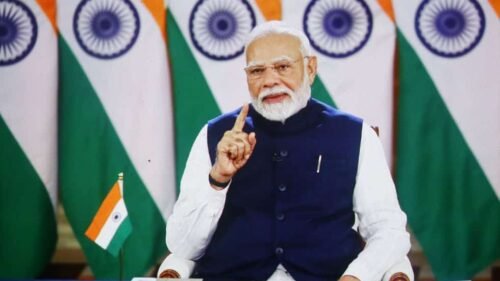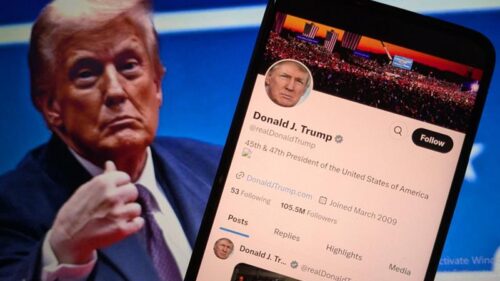India’s Prime Minister Narendra Modi traveled to the Shanghai Cooperation Organisation (SCO) summit, held August 31–September 1 in Tianjin, China, with two major objectives. The first: to convince Indian voters that he is strong enough to assert India’s new status as a great power while aligning with no other state. The second: to balance India’s relations with a US administration that blindsided him with tariff hikes and overtures to India’s hostile neighbor, Pakistan, with a Russia that continues to sell huge amounts of deeply-discounted oil to India and with an assertive China with which India shares a disputed 3,500-mile border.
He succeeded at least in leaving Tianjin with a series of photo opportunities asserting India’s “strategic autonomy” doctrine. The meeting was also a glitzy forum for Modi, Russian President Vladimir Putin and Chinese President Xi Jinping to claim that the world is looking their way more each day.
Trump’s outbursts and shifting optics
The summit, however, where Modi met with Putin and Xi, was the kind of showy performance that US President Donald Trump understands. Combined with the optics broadcast from China’s September 2 celebration of the 80th anniversary of the end of World War II — Japanese “militarism,” it seems, is more important to the Chinese Communist Party’s hold on power than those dusty volumes of Marx or Mao — and Trump could not resist trying to shout himself into the limelight with the autocrats he so admires.
US-India trade was a “totally one-sided disaster!” he thundered after having seen Modi riding in Putin’s limousine, and he peevishly asked Xi to “give my warmest regards to Vladimir Putin, and Kim Jong Un [who was also in Beijing for the festivities] as you conspire against the United States of America.” Still, Modi, Putin and Xi effectively made their point: Trump again performatively demonstrated unilateral US arrogance, even as he denigrates his supposed allies and undermines the liberal economic and political structures that have made Washington the center of the world. Tianjin and Beijing have shown that performance in diplomacy is also substance, and both events moved the international center of gravity a few steps towards Beijing.
For Modi, however, Delhi and Washington were more important than Tianjin or Beijing. Modi’s domestic opponents have been effectively battering him, in part, what a surprise, thanks to Trump. On May 10, Trump had trumpeted that he was “pleased to announce that India and Pakistan have agreed to a FULL AND IMMEDIATE CEASEFIRE … Thank you for your attention to this matter!”
Indian nationalists seized upon Trump’s claim, and an Indian Muslim politician, of all people, named Asaduddin Owaisi, denounced Modi for having allowed a “Gora in the White House” to act as India’s master on the highly sensitive issue of India’s ceasefire with Pakistan after the two countries clashed over Islamist terrorist killings of mainly Hindu tourists in Kashmir. “Gora” is a Hindi word that, in this context, essentially evokes a colonial “white master,” a loaded characterization in an India that remains sensitive about its colonial subjugation to distant whites. The memory of British rule might have faded, but still remains strong. Attacks by opposition politicians have put Modi on the defensive about whether he is too weak to defend India’s international interests.
Modi’s balancing act at the SCO
Modi also attended the SCO to reaffirm India’s “non-aligned” status, a pointed gesture in response to Trump having imposed a 50% tariff on India, and Trump having met with Pakistan’s Chief of Army Staff, General Asim Munir. Modi took Putin by the hand and huddled with Xi and Putin for photos. The three leaders referred vaguely to settling “border” issues and strategic partnerships.
For all the theater and photo ops in Tianjin, the SCO for the foreseeable future is likely to remain mostly puffery and pretense. The three great powers left Tianjin yet again, having “explored” ways to “reduce reliance” on the dollar, discussed creating an “SCO development bank,” but committed no money to it, and emphasized “the importance of multilateral cooperation in combating terrorism.” This is old and weak tea. Yet it will be Washington’s — Trump’s — policies that will shape whether India will continue its slow deepening of strategic ties with the US and Japan, not Modi’s performative act of camaraderie with two dictators at the SCO.
The recent SCO scored a diplomatic and propaganda success for its members, while Trump is sapping the economic foundations of the dollar and the US economy. Beyond Tianjin, the summit will be knowingly nodded over by what used to be called “progressive” or “Third World” intellectuals as evidence of their hoped-for new world order and of American decline. But for years to come, the dollar will remain king, the American economy preponderant, the US politically unavoidable and India will continue to stand aloof from entangling alliances.
[Newsweek Japan first published this piece.]
[Kaitlyn Diana edited this piece.]
The views expressed in this article are the author’s own and do not necessarily reflect Fair Observer’s editorial policy.
Support Fair Observer
We rely on your support for our independence, diversity and quality.
For more than 10 years, Fair Observer has been free, fair and independent. No billionaire owns us, no advertisers control us. We are a reader-supported nonprofit. Unlike many other publications, we keep our content free for readers regardless of where they live or whether they can afford to pay. We have no paywalls and no ads.
In the post-truth era of fake news, echo chambers and filter bubbles, we publish a plurality of perspectives from around the world. Anyone can publish with us, but everyone goes through a rigorous editorial process. So, you get fact-checked, well-reasoned content instead of noise.
We publish 3,000+ voices from 90+ countries. We also conduct education and training programs
on subjects ranging from digital media and journalism to writing and critical thinking. This
doesn’t come cheap. Servers, editors, trainers and web developers cost
money.
Please consider supporting us on a regular basis as a recurring donor or a
sustaining member.
Will you support FO’s journalism?
We rely on your support for our independence, diversity and quality.








Comment